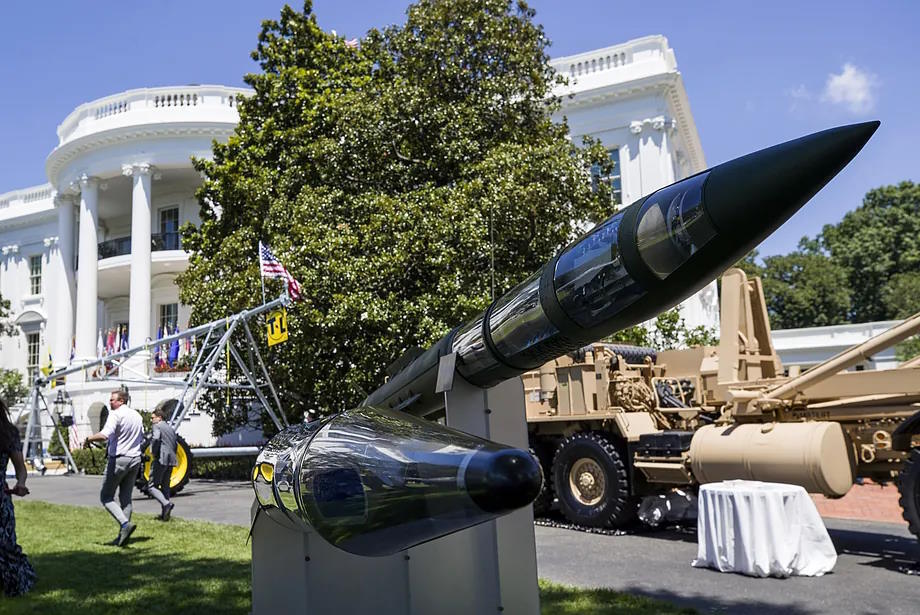The United States is becoming more involved in the Middle East conflict. Now, with the deployment of THAAD missile defense batteries and missiles to Israel, to be operated by around 100 American soldiers.
The THAAD system is one of the most advanced missile defense systems in the United States arsenal. Along with the Aegis missiles deployed on, among others, U.S. Navy destroyers in Rota, it is the missile defense system with the greatest capabilities in the country.
According to Pentagon spokesperson Brigadier General Pat Ryder, President Joe Biden ordered Secretary of Defense Lloyd J. Austin III to deploy the THAAD system and its crew to counter ballistic missiles from Iran. "This action underscores the strong commitment of the United States to the defense of Israel and Americans in Israel against any other ballistic missile attack by Iran," he stated in a press release. "This is part of a broader adjustment that the U.S. military has made in recent months to support Israel's defenses and to protect Americans from attacks by Iran and its allied militias," Ryder added, mentioning that this is not the first time the U.S. has deployed THAAD in the region.
An example of the incredible precision of THAAD is that it can destroy missiles at 150 kilometers altitude, in the thermosphere, the highest layer of the atmosphere where auroras occur and where the International Space Station is located, albeit at a higher altitude. What is even more remarkable is that the missiles, traveling at 10,000 kilometers per hour, do not have explosive warheads but are so precise that they directly hit their targets, meaning other missiles traveling at similar speeds.
THAAD became operational a decade and a half ago, initially aimed at defending Alaska, Hawaii, and the U.S. West Coast against potential intercontinental missile attacks from North Korea. Therefore, it is a weapon initially created to protect U.S. territory from a nuclear war.
Despite its massive military and diplomatic support for Israel, the U.S. usually does not publicize the deployment of soldiers in the country to avoid tensions with Arab states and to prevent giving reasons for terrorist groups to target its Armed Forces. However, the Pentagon has maintained a small contingent operating a radar station in the Negev Desert in the south of the country for years, which is precisely part of the THAAD support network. Hence, it can be said that the U.S. and Israel have been planning to send these equipment for years. The THAAD systems that will be deployed will operate in coordination with those of the United Arab Emirates and Saudi Arabia, in addition to other similar systems located on U.S. ships in the Mediterranean, Red Sea, and Arabian Sea.
The arrival of THAAD (Terminal High Altitude Area Defense) and its crews in Israel is a sign that the country's retaliation for the 180-missile attack launched by Iran on October 1 is imminent. The government of Benjamin Netanyahu has pledged to carry out a harsh retaliation against Tehran, which could include, despite White House calls, targeting Iran's nuclear program and its oil industry.
Tel Aviv has also hinted that the action could aim at overthrowing the Iranian Islamic regime, whose popularity is at very low levels due to corruption and economic mismanagement.
Conversely, Iran has threatened to launch missile attacks against the allies of Israel and the United States. According to U.S. Air Force General Kenneth McKenzie's statement last year, the Pentagon estimates that Iran has around 3,000 ballistic missiles —which follow a parabolic trajectory from launch to impact— similar to those launched against Israel two weeks ago. Additionally, Iran possesses thousands of cruise missiles that are slower and fly at low altitudes.
The United Arab Emirates and Saudi Arabia are precisely the only countries to which the U.S. has sold THAAD systems, so that these countries can protect themselves from Iran's ballistic missiles and the Houthi rebels in Yemen, who support the Tehran regime.
French President Emmanuel Macron urged his Iranian counterpart, Masud Pezeshkian, on Sunday to support "a general de-escalation" in Gaza and Lebanon, where the pro-Iranian Islamist movement Hezbollah is engaged in fierce battles with the Israeli army.
In a conversation between the two leaders, Macron emphasized that Iran has "the responsibility to support a general de-escalation and to use its influence in that direction against destabilizing actors who receive its support," as reported by the French Presidency.
